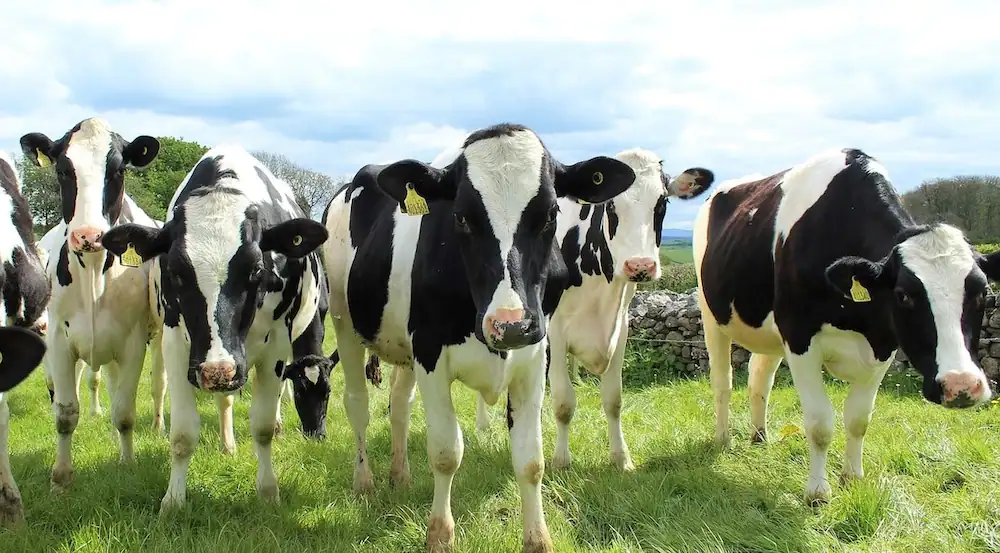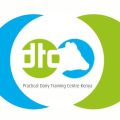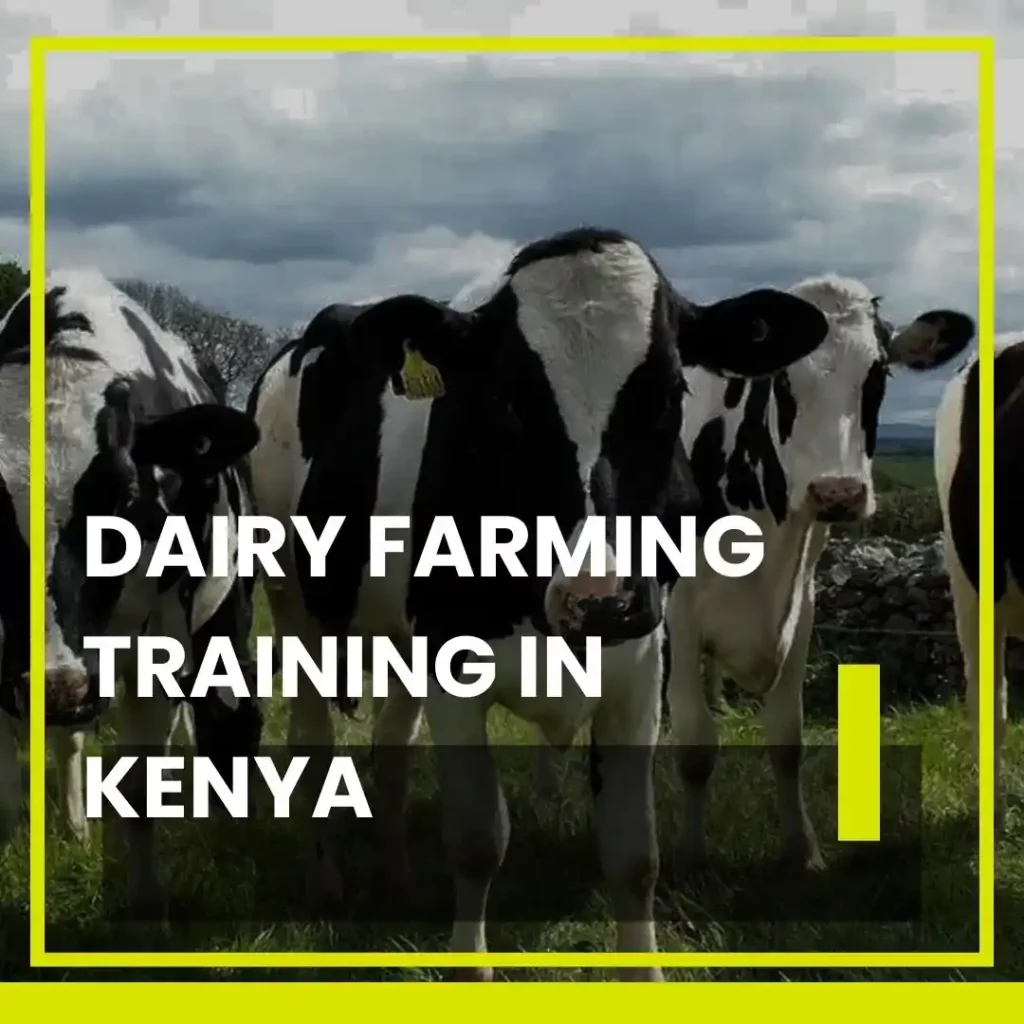Dairy Farming Training in Kenya
Introduction
Dairy farming plays a vital role in Kenya’s agricultural sector, contributing significantly to the country’s economy. With the potential for high returns and positive impact on rural livelihoods, it is no wonder that more and more individuals are turning to dairy farming as a profitable venture. However, to ensure success in this industry, comprehensive dairy training programs are essential. In this article, we will explore the various aspects of dairy farming and highlight the significance of training programs in enhancing productivity and profitability.
Understanding the Basics of Dairy Farming
A. Definition and importance of dairy farming
Dairy farming involves the production of milk from cows, which serves as a valuable source of nutrition for human consumption. Beyond its nutritional benefits, dairy farming provides employment opportunities and contributes to food security in Kenya.
B. Dairy farming’s contribution to the Kenyan economy
Dairy farming plays a significant role in Kenya’s economy, generating income for farmers and creating employment opportunities throughout the value chain. The dairy sector also contributes to rural development, poverty reduction, and overall economic growth.
C. Various dairy farming systems in Kenya
Kenya boasts a variety of dairy farming systems, ranging from extensive grazing systems to intensive zero-grazing systems. Each system has its own set of advantages and considerations, depending on factors such as land availability, climate, and resources.

Raising Dairy Cattle: Breeds, Selection, and Management
A. Overview of common dairy cattle breeds in Kenya
Kenya is home to several dairy cattle breeds, including Holstein-Friesian, Ayrshire, and Guernsey. Each breed possesses unique characteristics in terms of milk production, adaptability to local conditions, and disease resistance.
B. Factors to consider when selecting dairy cattle
Choosing the right dairy cattle for a farm is crucial for success. Factors to consider include milk production potential, breed adaptability, disease resistance, and overall animal health. It is essential to engage with breeders and experts to make informed decisions.
C. Essential aspects of dairy cattle management
Proper management is crucial for the overall well-being and productivity of dairy cattle. This includes ensuring clean and comfortable housing, implementing effective vaccination and deworming programs, regular health monitoring, and maintaining a balanced diet through proper feeding practices.
Dairy Farm Infrastructure and Facilities
A. Designing efficient dairy farm layouts
Efficient dairy farm layouts are essential for the smooth operation of a farm. Factors such as accessibility, cow flow, manure management, and infrastructure placement need to be carefully considered during the design process.
B. Milking parlors: types and significance
Milking parlors are integral to dairy farming operations. There are various types, including herringbone, parallel, and rotary parlors. The choice of milking parlor depends on factors such as farm size, labor availability, and milk production volume.
C. Importance of proper housing and feeding systems for dairy cattle
Proper housing and feeding systems are crucial for the health and well-being of dairy cattle. Comfortable and clean housing minimizes stress, while well-designed feeding systems ensure cows receive balanced and nutritious diets, resulting in optimal milk production.
Efficient Feeding Strategies for Dairy Cattle
A. Understanding the nutritional requirements of dairy cattle
Dairy cattle have specific nutritional requirements to support milk production and overall health. These include energy, protein, fiber, vitamins, and minerals. Understanding these requirements is essential for formulating balanced and cost-effective feeding strategies.
B. Types of animal feed and their significance
There is a wide range of animal feed available for dairy cattle, including pasture, silage, hay, and concentrate feed. Each type has its own nutritional composition and significance in meeting the cows’ dietary needs.
C. Ensuring a balanced diet for healthy and productive cows
A balanced diet is vital for the overall health and productivity of dairy cattle. Feed formulations should be tailored to individual cow requirements, ensuring that energy, protein, and other essential nutrients are provided in appropriate quantities and ratios.
Dairy Farming and Herd Health Management
A. Importance of maintaining optimal herd health
Maintaining optimal herd health is crucial for the long-term success of a dairy farm. Regular health monitoring, disease prevention, vaccination, and effective biosecurity measures are vital in minimizing health risks and ensuring the well-being of the herd.
B. Common diseases and preventive measures in dairy cattle
Dairy cattle may be susceptible to various diseases, such as mastitis, lameness, and reproductive disorders. Implementing preventive measures, including proper hygiene practices, regular veterinary check-ups, and proper vaccination protocols, can significantly reduce the occurrence and impact of these diseases.
C. Developing effective vaccination and deworming schedules
Proper vaccination and deworming schedules are essential for preventing diseases and maintaining herd health. Collaborating with veterinary professionals and following recommended protocols is crucial to develop effective schedules tailored to the specific needs of the dairy herd.
Milking Techniques and Equipment
A. Importance of correct milking practices
Correct milking practices are vital to maximize milk quality and minimize risks of contamination. Proper preparation of udders, adequate milking procedures, and post-milking teat disinfection contribute to maintaining milk hygiene and reducing bacterial contamination.
B. Various milking equipment and their functionality
A variety of milking equipment, such as milking machines, clusters, and pulsation systems, are available to improve milking efficiency and cow comfort. Choosing appropriate equipment and ensuring their proper functionality is key to optimizing milk quality and quantity.
C. Maintaining hygiene during milking
Maintaining strict hygiene during milking is essential to prevent contamination and ensure high-quality milk. This includes keeping milking equipment clean, observing proper udder preparation techniques, and practicing good personal hygiene.
Milk Handling, Storage, and Quality Control
A. Implementing proper milk handling procedures
Proper milk handling procedures are crucial for maintaining milk quality and safety. These include efficient milk cooling, hygienic storage, and adherence to strict cleanliness standards during milk transportation and processing.
B. Effective milk storage techniques and facilities
An integral part of dairy farming is efficient milk storage. Proper cooling, appropriate storage facilities, and regular monitoring of milk temperature are crucial to preserve milk freshness and prevent bacterial growth.
C. Quality control measures for maintaining milk freshness and safety
Maintaining quality and safety standards is essential in the dairy industry. Regular testing for milk quality parameters, adherence to regulatory standards, and effective implementation of food safety practices ensure that consumers receive fresh and safe milk products.
Financial Management and Record-Keeping in Dairy Farming
A. Importance of financial planning for dairy farmers
Financial planning is essential for dairy farmers to ensure sustainability and profitability. It involves budgeting, cost analysis, revenue forecasting, and risk management. Sound financial management practices contribute to the long-term success of a dairy enterprise.
B. Efficient bookkeeping methods and tools
Accurate record-keeping is crucial for effective financial management. Utilizing efficient bookkeeping methods and tools, such as electronic farm management systems, can streamline record-keeping processes and provide valuable insights for decision-making.
C. Assessing profitability and sustainability of the dairy enterprise
Regular assessment and analysis of the dairy enterprise’s profitability and sustainability are necessary to make informed business decisions. Evaluating factors such as milk production costs, market trends, and changes in input prices help dairy farmers adapt and stay competitive. This can be achieved through our dairy business incubation program at Practical Dairy Training Centre Kenya.
Marketing and Value Addition Opportunities in Dairy Farming
A. Exploring local and international dairy markets
Dairy farmers can tap into both local and international markets to expand their customer base and increase profitability. Understanding market dynamics, consumer preferences, and product demand are key in developing successful marketing strategies.
B. Value addition through milk processing and products
Value addition in dairy farming involves transforming raw milk into processed products such as cheese, butter, and yogurt. This not only adds value to the products but also provides additional revenue streams for dairy farmers.
C. Strategies for successful dairy product marketing
Successful marketing of dairy products involves branding, product differentiation, effective distribution channels, and targeted promotional activities. By understanding consumer needs and preferences, dairy farmers can develop strategies to showcase their products in the most appealing way.
Environmental Sustainability in Dairy Farming
A. Dairy farming’s impact on the environment
Dairy farming, like any agricultural activity, can have environmental impacts. These include greenhouse gas emissions, water pollution, and land degradation. Recognizing and addressing these impacts through sustainable practices is crucial for long-term environmental stewardship.
B. Implementing sustainable practices and waste management
To minimize environmental impact, dairy farmers can implement sustainable practices such as efficient manure management, soil conservation, and water conservation measures. Integration of renewable energy sources and waste recycling can further enhance sustainability.
C. Promoting biodiversity and conservation on dairy farms
Dairy farmers can play a vital role in promoting biodiversity and conservation on their farms. Practices such as agroforestry, establishment of wildlife corridors, and preservation of natural habitats contribute to maintaining ecological balance and overall environmental health.
Accessing Dairy Farming Training Programs in Kenya
A. Overview of government-supported training initiatives
The Kenyan government has recognized the importance of dairy farming and supports various training programs. These initiatives aim to provide farmers with the necessary knowledge and skills to succeed in the dairy sector.
B. Professional dairy farming courses and certifications
Aside from government initiatives, various institutions offer professional dairy farming courses and certifications. These provide in-depth training on various aspects of dairy farming, including practical skills, farm management, and technical knowledge.
C. Local and international organizations offering training opportunities
Numerous local and international organizations are dedicated to supporting dairy farmers through dairy training programs. These organizations offer workshops, seminars, and mentorship opportunities to enhance the capabilities of aspiring and established dairy farmers.
Success Stories: Inspiring Dairy Farmers in Kenya
A. Profiles of successful Kenyan dairy farmers
Kenya is home to numerous inspiring dairy farmers who have achieved remarkable success in the industry. Their stories serve as a source of inspiration and motivation for aspiring dairy farmers.
B. Their journeys, challenges, and achievements
From humble beginnings to overcoming challenges, these successful dairy farmers have faced various obstacles on their journey. Their resilience and dedication have resulted in notable achievements, both in terms of milk production and financial success.
C. Lessons that aspiring dairy farmers can learn
The success stories of these Kenyan dairy farmers provide valuable lessons for aspiring individuals in the industry. Lessons include the importance of hard work, continuous learning, effective management, and innovation in farming practices.
Frequently Asked Questions (FAQs)
A. What are the basic requirements for starting a dairy farm in Kenya?
Starting a dairy farm in Kenya requires careful planning and consideration. Basic requirements include access to land, capital for infrastructure and cattle purchase, knowledge of dairy farming practices, and compliance with legal and regulatory requirements. You can work with qualified trainers at Practical Dairy Training Centre Kenya to get the best out of your dairy farm.
B. How can one access financial support for establishing a dairy farm?
Financial support for establishing a dairy farm can be obtained through various channels such as government grants, loans from financial institutions, development organizations, and dairy cooperative societies. It is important to research and identify the most suitable options based on individual circumstances.
C. Are there any specific policies or regulations regarding dairy farming in Kenya?
Yes, Kenya has specific policies and regulations governing the dairy sector. These encompass areas such as milk quality standards, animal welfare, importation and exportation of dairy products, and disease control measures. Dairy farmers must familiarize themselves with these policies to ensure compliance and uphold industry standards.
Conclusion
Unlocking success in dairy farming requires a comprehensive understanding of the industry’s fundamentals and the implementation of best practices. Dairy Training programs in Kenya offer valuable opportunities for both aspiring and established dairy farmers to enhance their knowledge and skills, ultimately leading to increased productivity, profitability, and sustainability in the dairy sector. By investing in education and training, farmers can unlock their potential and contribute to the continued growth of the dairy industry in Kenya.

